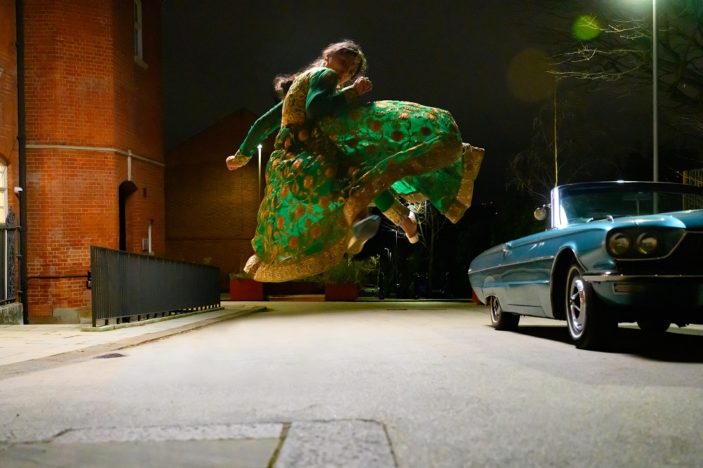
You have to hand it to writer/director Nida Manzoor for mashing up genres so bombastically in Polite Society and still managing it to make sense when our lead heroine finally lands with her feet planted on the ground.
And that’s meant quite literally, as Polite Society‘s lead energy charge – Priya Kansara‘s Ria – has a penchant for roundhouse kicks and trading blows as she inches towards her hopeful career path of being a professional stuntwoman. It isn’t the most obvious, nor traditional, professional intention for a young Pakistani female – she’s heard all the jokes about being a doctor – but it’s her defiance in wanting to break normative inclinations and forge her own future that adds a relatable level of fire and charm to Manzoor’s proceedings.
With an excitable attitude that brings to mind the manic energy of Scott Pilgrim vs the World at times, Polite Society indulges in visual gags and a goofy temperament that, initially, lends the film an easy viewing mentality. It speaks to cultural traditions and wanting to break away from expectation, as well as honouring the lovely, messy bond there is between two opposing sisters, so you’re right in feeling quite taken aback by its eventual tonal shift from caper comedy (by way of coming of age dramedy) to a thriller personality that wouldn’t feel entirely out of place next to something like Jordan Peele’s Get Out.
How we get to such a horrific point – and I’ll leave the “What?” and the “Why?” for you to discover on your own – comes about through Ria’s sister, art-school dropout Lena (Ritu Arya), and her suspiciously quick engagement to perfect-on-paper bachelor Shah (Akshay Khanna), a doctor who epitomises the term “Mummy’s boy.”; Nimra Bucha dialing it up to 11 with a glorious, sinister glee as said mother.
So much of Polite Society‘s enjoyment comes from its unpredictability, and whilst the aforementioned narrative shift feels like it could belong in a different movie – and quite an unsettling one at that – the villainous nature of how it all comes to be allows Manzoor to embrace her inventiveness when detailing a story that, at its core, has been tried and tested countless times before. The back-and-forth nature of Ria and Lena supporting and opposing each other is nothing we haven’t seen before (look how well that narrative turned out for Frozen), nor is Ria’s defiance in staying true to her passion, but the Bollywood-style approach to its action and its infectious embrace of teen-movie hijinks means there’s a consistent freshness present; an extended set-piece where Ria and her best gal pals (Ella Bruccoleri and Seraphina Beh, both absolute scene stealers) devise a plan to steal Shah’s laptop is a farcical delight that speaks directly to said freshness.
The late swerve in its temperament may throw audiences for a loop, but it’s never enough to off-balance Ria’s expert action skills, with the devoted wire-work of the film’s bouncy stunt team proving visually and situationally arresting throughout. A film for the dreamers and appreciators of cultural cinema, Polite Society ironically says to hell with the rules – but respectfully so, of course.
![]()
![]()
![]()
![]()
![]()
THREE AND A HALF STARS (OUT OF FIVE)
Polite Society is now screening in Australian theatres.
Polite Society was originally reviewed as part of our Sundance Film Festival coverage. You can read Harris’s review here.
